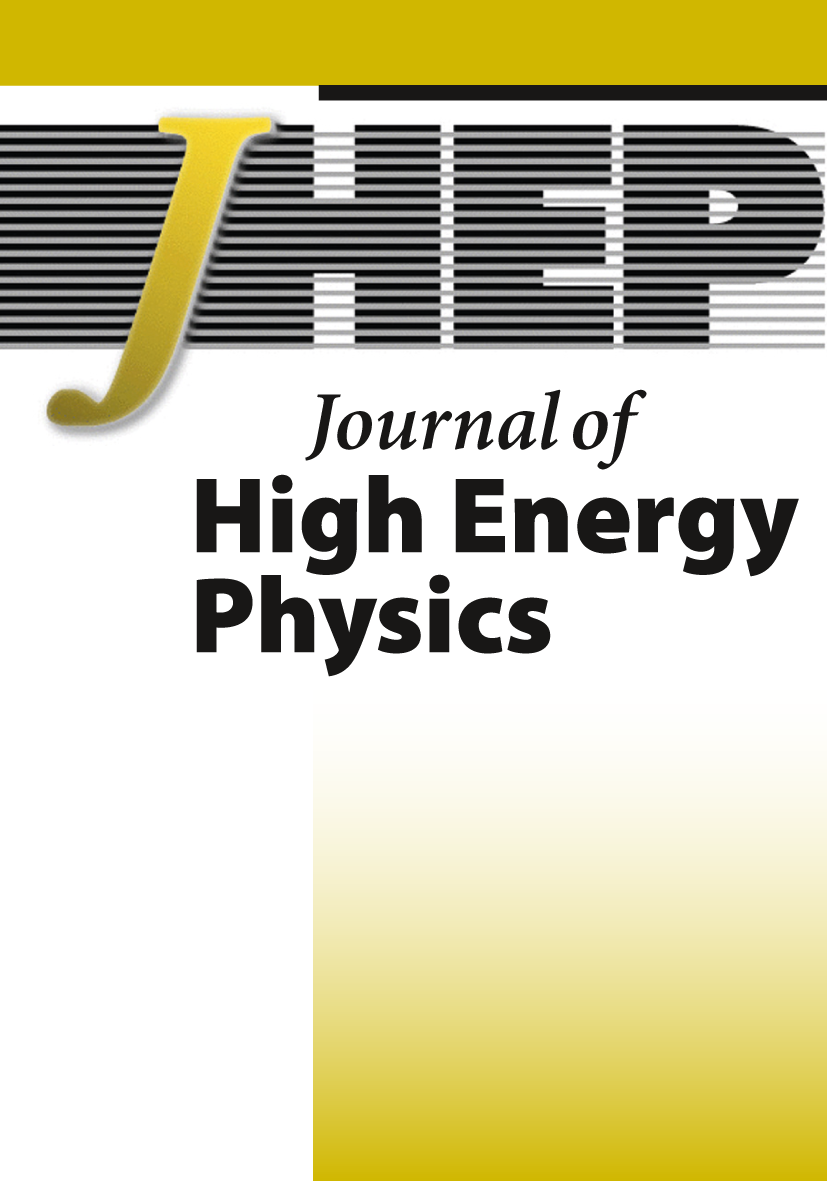doi.org/10.1007/JHEP02(2016)016
Preview meta tags from the doi.org website.
Linked Hostnames
30- 83 links toinspirehep.net
- 79 links toarxiv.org
- 57 links toscholar.google.com
- 54 links toadsabs.harvard.edu
- 35 links todoi.org
- 29 links tolink.springer.com
- 9 links towww.springernature.com
- 4 links toscholar.google.co.uk
Thumbnail

Search Engine Appearance
https://doi.org/10.1007/JHEP02(2016)016
Implications of unitarity and gauge invariance for simplified dark matter models - Journal of High Energy Physics
We show that simplified models used to describe the interactions of dark matter with Standard Model particles do not in general respect gauge invariance an
Bing
Implications of unitarity and gauge invariance for simplified dark matter models - Journal of High Energy Physics
https://doi.org/10.1007/JHEP02(2016)016
We show that simplified models used to describe the interactions of dark matter with Standard Model particles do not in general respect gauge invariance an
DuckDuckGo
Implications of unitarity and gauge invariance for simplified dark matter models - Journal of High Energy Physics
We show that simplified models used to describe the interactions of dark matter with Standard Model particles do not in general respect gauge invariance an
General Meta Tags
164- titleImplications of unitarity and gauge invariance for simplified dark matter models | Journal of High Energy Physics
- charsetUTF-8
- X-UA-CompatibleIE=edge
- applicable-devicepc,mobile
- viewportwidth=device-width, initial-scale=1
Open Graph Meta Tags
6- og:urlhttps://link.springer.com/article/10.1007/JHEP02(2016)016
- og:typearticle
- og:site_nameSpringerLink
- og:titleImplications of unitarity and gauge invariance for simplified dark matter models - Journal of High Energy Physics
- og:descriptionWe show that simplified models used to describe the interactions of dark matter with Standard Model particles do not in general respect gauge invariance and that perturbative unitarity may be violated in large regions of the parameter space. The modifications necessary to cure these inconsistencies may imply a much richer phenomenology and lead to stringent constraints on the model. We illustrate these observations by considering the simplified model of a fermionic dark matter particle and a vector mediator. Imposing gauge invariance then leads to strong constraints from dilepton resonance searches and electroweak precision tests. Furthermore, the new states required to restore perturbative unitarity can mix with Standard Model states and mediate interactions between the dark and the visible sector, leading to new experimental signatures such as invisible Higgs decays. The resulting constraints are typically stronger than the ‘classic’ constraints on DM simplified models such as monojet searches and make it difficult to avoid thermal overproduction of dark matter.
Twitter Meta Tags
6- twitter:site@SpringerLink
- twitter:cardsummary_large_image
- twitter:image:altContent cover image
- twitter:titleImplications of unitarity and gauge invariance for simplified dark matter models
- twitter:descriptionJournal of High Energy Physics - We show that simplified models used to describe the interactions of dark matter with Standard Model particles do not in general respect gauge invariance and that...
Item Prop Meta Tags
3- position1
- position2
- position3
Link Tags
9- apple-touch-icon/oscar-static/img/favicons/darwin/apple-touch-icon-6ef0829b9c.png
- canonicalhttps://link.springer.com/article/10.1007/JHEP02(2016)016
- icon/oscar-static/img/favicons/darwin/android-chrome-192x192.png
- icon/oscar-static/img/favicons/darwin/favicon-32x32.png
- icon/oscar-static/img/favicons/darwin/favicon-16x16.png
Emails
1Links
379- http://adsabs.harvard.edu/cgi-bin/nph-data_query?link_type=ABSTRACT&bibcode=1977PhRvD..16.1519L
- http://adsabs.harvard.edu/cgi-bin/nph-data_query?link_type=ABSTRACT&bibcode=1986PhLB..166..196H
- http://adsabs.harvard.edu/cgi-bin/nph-data_query?link_type=ABSTRACT&bibcode=1990PhRvL..64..615G
- http://adsabs.harvard.edu/cgi-bin/nph-data_query?link_type=ABSTRACT&bibcode=2008PhRvD..78i6004S
- http://adsabs.harvard.edu/cgi-bin/nph-data_query?link_type=ABSTRACT&bibcode=2009PhRvD..80d3509B